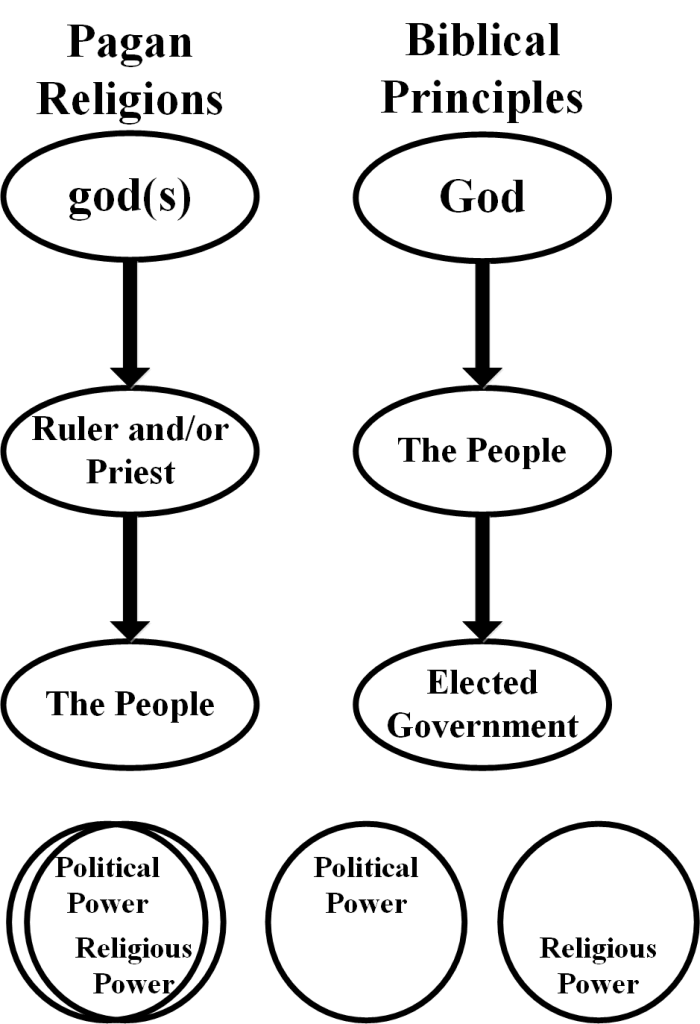This article begins where the last one ended. I suggest reading it before proceeding. Our current government uses corporate entities.[1] It has its own corporate credit (DUNS) number and over 66,000 other incorporated entities beneath it. If needed, there is more confirmation. One piece is an analysis document extolling the government corporate structure’s virtues.[2] The report also contains some omissions and inconsistencies. So what does this report say?
Report Summary
The analysis “provides an overview of the government corporation as an administrative model.”[3] Such corporations are “a government agency that is established by Congress to provide a market-oriented public service and to produce revenues that meet or approximate its expenditures.”[4]
America has used corporate government for over a century, these corporations are relatively few (17 in the report), and don’t require annual appropriations if both well-structured and run.[5] At least three factors drive interest in using government corporate structures. First, “the restrictive character of the federal budget encourages agencies to develop new sources of revenue.” Second, it is “politically easier for corporate bodies to be exempted by Congress from the federal government’s general management laws.” Third, this structure supports a “‘New Public Management’ that emphasizes entrepreneurship, risk-taking, and private sector practices.” However, continued interest in such corporations “prompts questions as to their legal character.”[6] We’ll explore that aspect in the final section.
Problems
Before that, I found the following problems with these structures noted in the report. Mind you, the report did not necessarily consider these to be problems. They were simply issues I saw.
- There is no one agency responsible for oversight and/or supervision.[7]
- Government corporations have the administrative flexibility to accomplish their goals while remaining responsive to Congress and the President.[8]
- Emergencies result in creating many government corporations. After the emergency is over, the executive branch may simply absorb them.[9]
- As a corporate body, a government corporation has a separate legal personality distinct from that of the United States.[10]
- Government corporations are exempt from many executive branch budgetary regulations.[11]
- The report claimed there were only 17 government corporations in 2011.[12] But in fact, all agencies had already been incorporated—even those deriving their financial support from congressional appropriations. In fact, a new government agency (DHS) was created to put the Coast Guard (a military branch) under control of a government corporation.
- The General Accounting Office requested relaxing audit requirements from annually to once every three years. Since then, annual audits are again required, but under each agency corporation’s inspector general’s office rather than the GAO.[13]
- The office created to oversee corporate formation, authority, and operations has been all but eliminated; resulting in limited expertise to provide advice, oversight, or consistent policy.[14]
- Finally, there is little managerial oversight by either the President or Congress.[15]
Biblical Governance Revisited
Time for a quick reminder regarding Biblical governance structure and purpose before we talk about these problems.[16] God gave man both the church and governance after man turned from God in both Genesis 3 (spiritual) and 1 Samuel 8 (physical). God appointed Aaron as Israel’s first priest and Moses its first judge.
In Deut. 1, the people elected judges from their group, and commissioned them over each tribe’s tens, fifties, hundreds, and thousands. They were to possess wisdom, discernment, and impartiality. Judges were to favor neither the rich nor poor, the native nor the foreigner. One law was intended to be common to them all.
Both the priest and judges served God by serving His people. The first by teaching what it means to live as God’s people. The second providing justice when someone broke God’s law. The Levites role as priest was hereditary, but changed with Christ’s appointment of the Apostles and the Holy Spirit’s outpouring. Both groups were accountable to God and the people. Obedience to God came first, and part of that obedience came by treating others in love.
Two Cities
Israel’s model described above could not be further from the worlds. Pagan societies like Babylon had one or more god(s). Rulers and/or priests governed these societies. Sometimes the ruler was considered a god themselves. Is that any different today? There was a close relationship between religion and governance, and the ruler often asserted authority over religion. The diagram below shows the differences between these societies.

Our Founder’s Decision
Our Founder’s clearly and decisively rejected the pagan society model when they declared independence from Britain. That is evident from our founding documents and our Founder’s writings. These incorporated Biblical rights and principles into the promises and structures those documents contain. Rights and principles derived from God’s divine and natural law forming common law’s basis. The Bible contains America’s superior law and provides the foundation for our four founding documents. These founding documents are also recognized as America’s supreme law.[17] These documents are the Declaration of Independence, Articles of Confederation, Constitution[18] (the first one), and Northwest Ordinance.
Biblical principles provide common law’s basis related to rights and title. The Bible’s Ten Commandments provide one example, but there are others.[19] Justice Thomas’s opinion from Gamble v. United States, noted “common law is ‘not the product of the wisdom of some one man, or society of men, in any one age; but of the wisdom, counsel, experience, and observation, of many ages of wise and observing men.’”[20] Common law is largely unwritten and opinions were generally narrow and intended to prevent injustice occurring in particular circumstances.
Society developed common law over time through the practices, customs, requirements, and standards it developed. Common law changed as these underpinnings changed. Therefore, one had to learn them from experience. This is one reason why it often was several generations before immigrants could become members of a new society. They needed to understand society’s rules, and why they mattered. Written law was the exception, rather than the rule. My how far we’ve been steered from that idea.
So Why Incorporate?
So why does an entity incorporate? That answer is simple enough. It is to limit its liability. The insulation this may cause has the potential to influence or limit accountability. We see evidence of a lack of accountability to the people in the problems noted within the Congressional Research Service article outlined earlier. We see it in our legislative, executive, and judicial branch’s actions today. All of which are incorporated.
So, can a government use a corporate entity? Yes, it can contract out to a service corporation when it chooses not to provide such service itself. However, in my opinion, government itself cannot lawfully incorporate. It did not start that way, and was rarely used until 1861. The idea of government incorporating is contrary to America’s founding principles. The whole notion of using corporations to increase management efficiency put forth during the Wilson administration is simply a lie. A fiction government knowingly created and peddled to the public. And we accepted it.
This idea can be simply demonstrated. One controls what they create. Within pagan societies, government created the people. Government is sovereign and its power absolute. The people exist to serve the state. Not so with America. The people created government. The people are sovereign and government power limited. Government exists only to protect and serve the people in specific capacities. These approaches are mutually exclusive and incompatible. We have the right to alter or abolish any government no longer serving its intended purpose. This government no longer serves its intended purpose. People need to demand a return to that intended purpose, or satisfy themselves in the slavery a rogue government creates.
Footnotes:
[1] Wolf, Dan, Our Calling, Status, and Law, Virginia Christian Alliance, June 21, 2022. https://vachristian.org/our-calling-status-and-law/
[2] Kosar, Kevin R., Federal Government Corporations: An Overview, Congressional Research Service, June 8, 2011, https://sgp.fas.org/crs/misc/RL30365.pdf . Accessed July, 2022.
[3] Ibid, p. i.
[4] Ibid.
[5] Ibid.
[6] Ibid.
[7] Ibid.
[8] Ibid.
[9] Ibid, p. 4.
[10] Ibid, p. 6.
[11] Ibid, p. 7.
[12] Ibid, p. 2.
[13] Ibid, p. 8.
[14] Ibid, p. 10.
[15] Ibid, p. 13.
[16] More detail can be found in Wolf, Dan, pp. 193-209, The Light & The Rod: Why Biblical Governance Works, Living Rightly Publications, 2020. Also, Wolf, Dan, pp. 119-47, A Handbook of Natural Rights, Living Rightly Publications, 2018. And in many articles on the VCA website.
[17] Library of Congress, United States Code: Preface, 1925, https://www.loc.gov/item/uscode1925-001000003/ . Accessed July, 2022.
[18] See Olney, J., A History of the United States, On a New Plan, Durrie & Peck, 1842.
[19] Wolf, Dan, A Handbook of Natural Rights, Living Rightly Publications, 2018. This book provides the Biblical basis for many of our natural (God-given) rights. https://www.amazon.com/Dan-Wolf/e/B01LW7RK7L?ref=sr_ntt_srch_lnk_2&qid=1658238726&sr=8-2
[20] Thomas, Clarence, Justice, p.40, Gamble v. United States, No. 17-646, https://www.supremecourt.gov/opinions/18pdf/17-646_new_o759.pdf . Accessed July, 2022.





